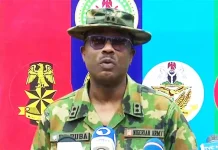#TrackNigeria The United Nations (UN) has renewed its call for more interventions to address the nagging humanitarian crisis caused by the Boko Haram insurgency in the North East.
The call was contained in a statement issued in Maiduguri on Sunday by the UN Office for Coordination of Humanitarian Affairs (UN-OCHA).
The UN said a team of senior officials had conducted a five-day assessment tour of Borno state and visited Internally Displaced Person (IDP) camps in Damboa, Dikwa, Maiduguri and Rann.
It said the team observed that the humanitarian crisis in Borno, Adamawa and Yobe needed renewed support to face the recent upsurge in violence and growing humanitarian needs.
The UN quoted Mr Vincent Houver of the International Organization for Migration (IMO) as saying that “the crisis in the Lake Chad Region is far from over. The humanitarian community cannot spare any effort at this time.
“This week, we met women, children and men who were forced to flee multiple times and urgently need protection and assistance to survive and rebuild their lives. We cannot let them down.”
According to the UN agency, more than 134,000 persons had been displaced since January due to upsurge in violence and military counter-operations in the sub region.
It revealed that about 7.1 million people needed lifesaving assistance, including food, nutrition and healthcare interventions, while about three million others, including one million children, were vulnerable to food insecurity and malnutrition.
Mr Edward Kallon, the UN Humanitarian Coordinator in Nigeria, disclosed that aid agencies had scaled up humanitarian response to address the situation.
“Aid agencies have significantly scaled up and reached some two million people with aid this year.
“However; much more supports are urgently needed. We are worried about the tens of thousands of people who have recently fled due to rising violence and are still sleeping outside in the open.
“With the rainy season progressing, they will face increased risk of diseases and will need immediate protection,” Kallon said.
The UN also quoted Mr Christian Gad of the Danish Refugee Council as adding that “some of the people we met have been living in IDP camps for several years.
“All actors, including government and the private sector in Nigeria, need to join forces to help those affected by the crisis to recover in dignity and restart their lives.”
It explained that the UN and its partners have appealed for 848 million dollars to enable it to provide urgent life-saving assistance to 6.2 million people in 2019, adding that the response plan was so far 32.6 per cent funded.
It stressed that more funding was urgently needed to sustain the humanitarian response.
During the visit, the team met with the officials of Borno Ministry of Budget and National Planning, Gov. Babagana Zulum, a wide range of UN agencies and humanitarian organisations.
Members of the team included Ms Reena Ghelani, Director, Operations and Advocacy Division (UN-OCHA) and Ms Sheila Grudem, Deputy Director, Emergency Preparedness and Response Support Division, World Food Programme (WFP).
Others were Mr Christian Gad, Head, Emergencies, Danish Refugee Council, Mr Vincent Houver, Deputy Director, Department of Operations and Emergencies, IMO and Mr José Barahona, Director, Emergency Response, Norwegian Refugee Council (NRC).
Mr Andrew Mbogori, Principal Emergency Coordinator, Division of Emergency Services, United Nations High Commissioner for Refugees (UNHCR) and Dr Renee Van de Weerdt, Acting Director, Emergency Operations, World Health Organisation (WHO) were also part of the team. (NAN)



